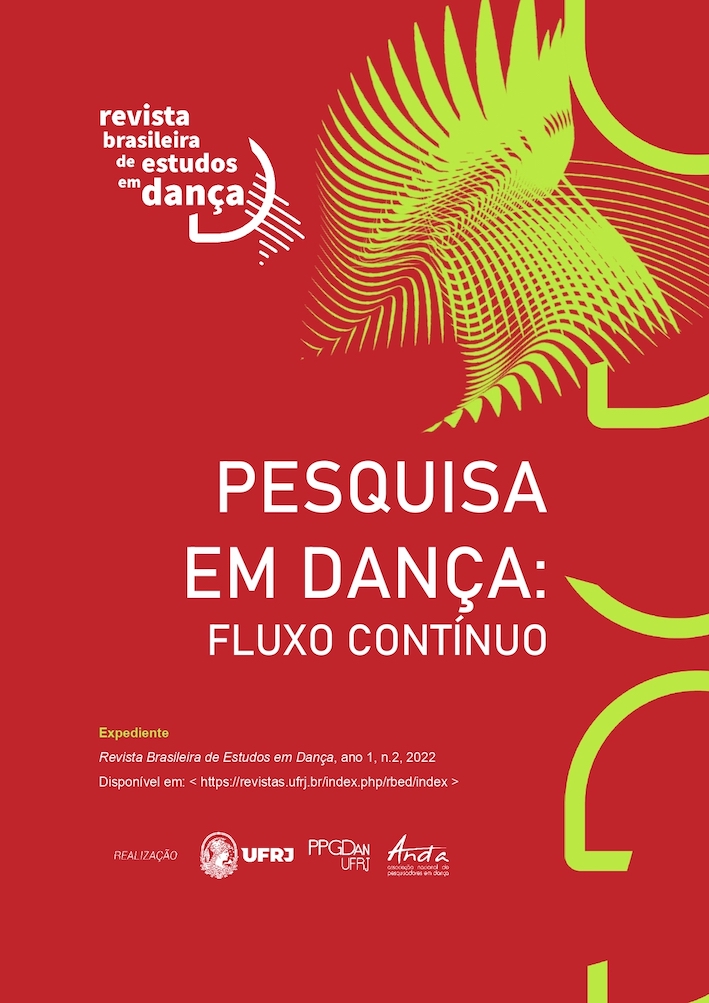Movimento e Experiência nas preferências de aprendizagem do grupo Corpo Composto
DOI:
https://doi.org/10.58786/rbed.2022.v2.n2.55316Resumo
Este artigo é recorte da pesquisa que desenvolvemos no âmbito do Doutoramento em Motricidade Humana, na especialidade de Dança, na Universidade de Lisboa, e tem como propósito investigar se o estudo direcionado do movimento influencia as preferências de aprendizagem dos sujeitos para além da sala de dança. Caracterizada como um estudo de caso de cunho qualitativo, busca tecer considerações sobre o papel do movimento do corpo na aprendizagem, a partir da experiência dos adolescentes integrantes do Grupo Corpo Composto – coletivo de pesquisa em dança e adolescência, da cidade de Aparecida de Goiânia, Goiás. Para esta escrita apresentamos o caso, referencial teórico e metodologia que amparam a investigação longitudinal. Apresentamos a percepção subjetiva da experiência e as preferências de movimento por meio da análise de entrevistas pela ótica Bakhtiniana, através da Análise Dialógica do Discurso (ADD). As respostas obtivas contribuem para a identificação dos primeiros indícios de resposta.Downloads
Downloads
Publicado
Versões
- 2023-11-30 (2)
- 2022-12-30 (1)
Como Citar
Edição
Seção
Licença
As pessoas autoras que publicarem na Revista Brasileira de Estudos em Dança são os responsáveis pelo conteúdo dos artigos assinados e retém os direitos autorais. Concedem à revista o direito de primeira publicação com o trabalho simultaneamente licenciado sob a Licença Creative Commons Atribuição-Não Comercial 4.0 (Open Archives Iniciative - OAI). Esse recurso, utilizado para periódicos de acesso aberto, permite o compartilhamento do trabalho para fins não comerciais com reconhecimento da autoria. Caso o texto venha a ser publicado posteriormente em outro veículo, a pessoa autora deverá informar que o mesmo foi originalmente publicado como artigo na Revista Brasileira de Estudos em Dança. Assim sendo, ainda que a revista seja detentora da primeira publicação, é reservado às pessoas autoras o direito de publicar seus trabalhos em repositórios institucionais ou em suas páginas pessoais, mesmo que o processo editorial não tenha sido finalizado.
É reservado à revista o direito de realizar alterações de ordem normativa, ortográfica e gramatical visando manter o padrão de língua, respeitando-se, porém, o estilo autoral.

